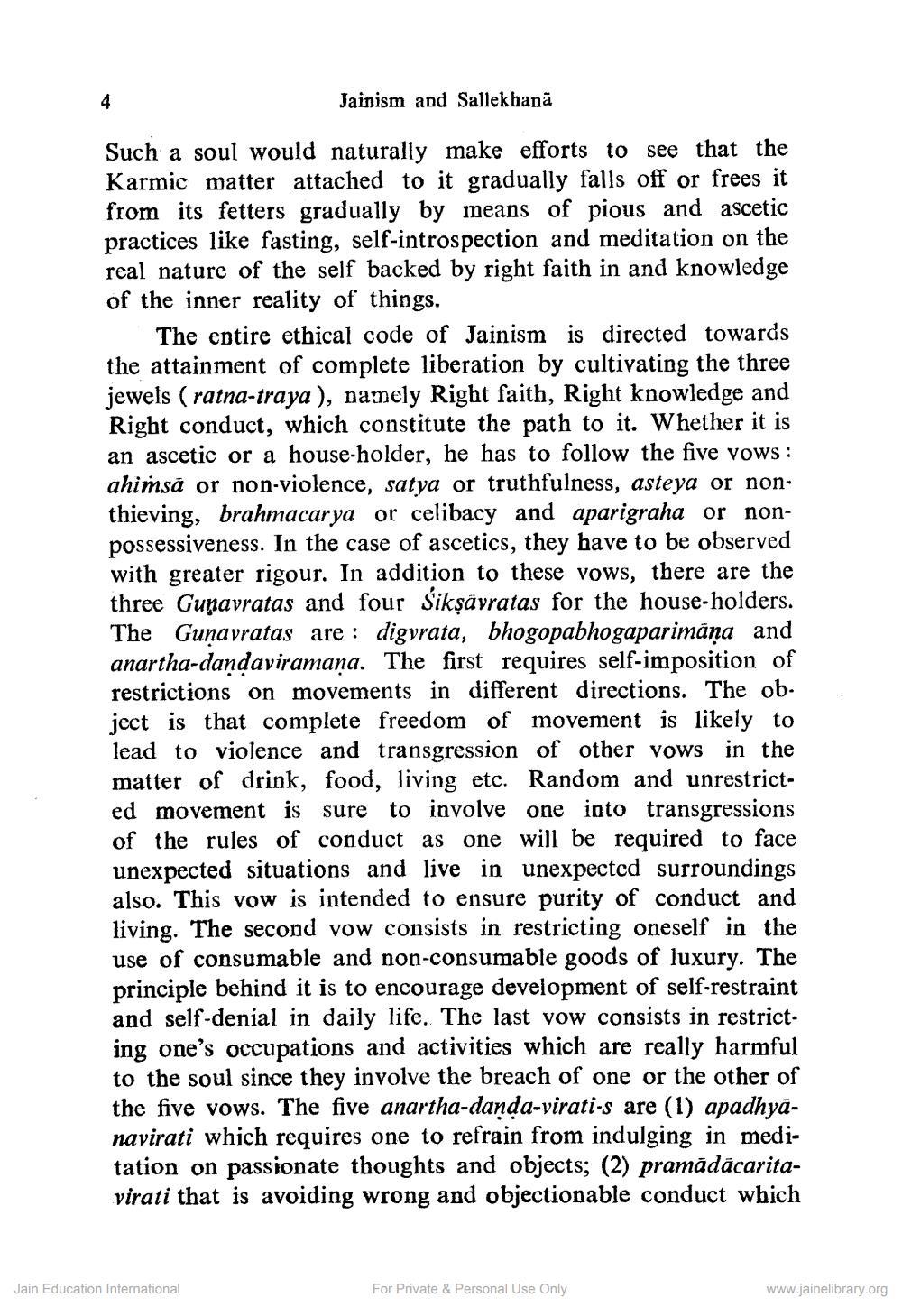________________
Jainism and Sallekhana
Such a soul would naturally make efforts to see that the Karmic matter attached to it gradually falls off or frees it from its fetters gradually by means of pious and ascetic practices like fasting, self-introspection and meditation on the real nature of the self backed by right faith in and knowledge of the inner reality of things.
The entire ethical code of Jainism is directed towards the attainment of complete liberation by cultivating the three jewels (ratna-traya), namely Right faith, Right knowledge and Right conduct, which constitute the path to it. Whether it is an ascetic or a house-holder, he has to follow the five vows : ahińsā or non-violence, satya or truthfulness, asteya or nonthieving, brahmacarya or celibacy and aparigraha or nonpossessiveness. In the case of ascetics, they have to be observed with greater rigour. In addition to these vows, there are the three Gunavratas and four Sikşavratas for the house-holders. The Gunavratas are : digvrata, bhogopabhogaparimāņa and anartha-dandaviramaņa. The first requires self-imposition of restrictions on movements in different directions. The ob ject is that complete freedom of movement is likely to lead to violence and transgression of other vows in the matter of drink, food, living etc. Random and unrestricted movement is sure to involve one into transgressions of the rules of conduct as one will be required to face unexpected situations and live in unexpected surroundings also. This vow is intended to ensure purity of conduct and living. The second vow consists in restricting oneself in the use of consumable and non-consumable goods of luxury. The principle behind it is to encourage development of self-restraint and self-denial in daily life. The last vow consists in restricting one's occupations and activities which are really harmful to the soul since they involve the breach of one or the other of the five vows. The five anartha-danda-virati-s are (1) apadhyanavirati which requires one to refrain from indulging in meditation on passionate thoughts and objects; (2) pramădācaritavirati that is avoiding wrong and objectionable conduct which
Jain Education International
For Private & Personal Use Only
www.jainelibrary.org




